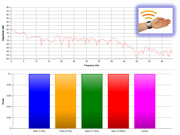
Jul
As many of us already know, the survey can be an invaluable tool for monitoring the needs and desires of your customer base. However, many of us have also found that surveys conducted online are often little less than irritating…
Pop-up surveys are now one of the most popular techniques employed to collect information from website visitors, but they also can be quite irksome to some people. The annoyance factor here stems from two issues: (1) These surveys pop-up right at the moment when they are least welcome and make you click on them to close the window, and (2) they often ask the customer to take a survey that may not align with their current mood or objective.
From a business point of view, you actually may be alienating your customers by making their experience on your site discomforting. Additionally, the surveys may distract customers from your main objective of their buying your products or converting.
The solution, though, is not to discard surveys; they’re quite valuable! However, care must be taken to implement online surveys properly and in ways that are less intrusive to website visitors. Here are some recommendations to this end:
• Don’t put a survey on your main page: Having a pop-up window come up the moment a visitor arrives is the most intrusive way to request they take a survey. Instead, have the survey placed inside the website, and perhaps tie the survey to a promotional piece about your company.
• Reward visitors for taking your survey: Give them a chance to win a nice prize in a drawing, perhaps. Whatever the reward offered, make sure it’s a strong enough incentive to take the survey painlessly.
• Tie your website survey with your newsletter or your friends on Facebook: In other words, connect the survey with people who have joined your mailing list. These are the people who have already clearly demonstrated an interest in your product. If you have a list of customers, you can email them directly as well. Additionally, the last group of people you want to take your survey are those that randomly come to your site. They may not be representative of your paying customers anyway.
• Keep your surveys short: It’s far too easy for people to get tired during a survey, and when this happens, the information they provide may not be accurate or complete—and therefore won’t be useful. A short survey will keep an individual alert, and hopefully the respondent will provide more accurate information. Additionally, make sure that the survey is created in a way that makes it appear social and that avoids a stoical feel. Those taking your survey are customers or prospective customers, and they should be treated like friends.

Your online surveys should be short and clear enough that your customers never look like this when completing them.
Though these tips may seem simple, following them can make all the difference when it comes to gleaning information from your customers during your market research process. When conducting any sort of marketing research, it’s always important to make sure that your data is kept as objective as possible—and ensuring that your respondents are not irked or ignoring your surveys is a good place to start.
Tags: market research, online, online surveys, survey







